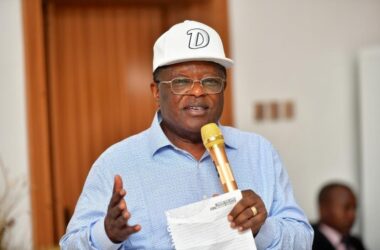The Economic and Financial Crimes Commission (EFCC) has arrested several recently dismissed managing directors of Nigeria’s major refineries over a multi-billion dollar fraud scandal that has shocked the oil and gas sector.
Investigators have reportedly uncovered over N80 billion in personal accounts belonging to one of the former officials, deepening suspicion of massive corruption in the nation’s refinery rehabilitation projects.
The arrests were made as part of an ongoing investigation into the nearly $3 billion allocated for the repair of the Port Harcourt, Warri, and Kaduna refineries. According to EFCC insiders, $1.5 billion was assigned to the Port Harcourt Refining Company, $740 million to the Kaduna plant, and $656 million to the Warri facility. These funds, meant for urgent upgrades, appear to have delivered little to no meaningful results.
Ibrahim Onoja, the former Managing Director of Port Harcourt Refining Company, and Efifia Chu, formerly in charge of Warri Refining and Petrochemical Company, are among the top figures now under investigation.
Several other senior officials, including Bala Wunti, the ex-chief of the National Petroleum Investment Management Services (a key NNPCL subsidiary), have also been dismissed or summoned for questioning.
One senior EFCC source, who spoke under anonymity, noted that all individuals who held leadership positions during the disbursement of these funds are being scrutinized. “We are asking: where is the money, and what has happened to the refineries?” the source said.
Documents obtained by the press further revealed that the probe also includes Mele Kyari, the former Group CEO of the Nigerian National Petroleum Company Limited (NNPCL), along with 13 other high-ranking officials. The EFCC has requested certified copies of their financial records and allowances from the current NNPCL management.
The situation has exposed more than just financial misconduct. Refineries that were publicly declared operational late last year have either shut down or are functioning far below capacity.
The Warri plant, which reportedly consumed nearly $900 million in repairs, ceased operations just a month after reopening due to technical and safety concerns. Meanwhile, the $1.5 billion Port Harcourt refinery is running at less than 40% of its projected capacity.
The Delta State chapter of the Independent Petroleum Marketers Association of Nigeria (IPMAN) confirmed that no petroleum products have been made available for lifting at the Warri refinery since its relaunch. Meanwhile, support staff at the refinery have announced plans for an indefinite strike over longstanding issues of casualisation and unpaid benefits.









